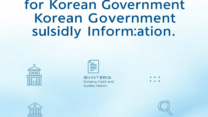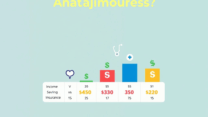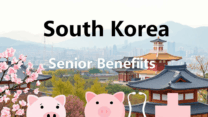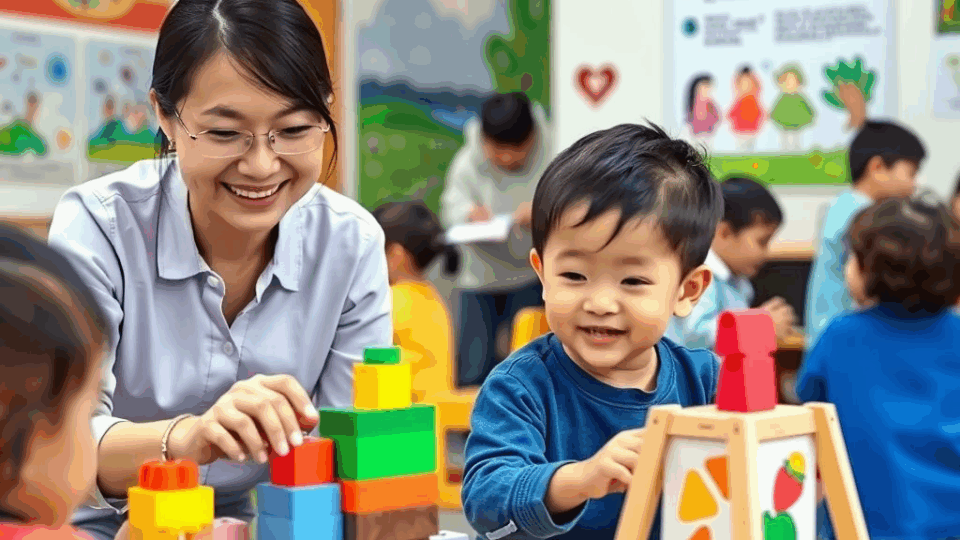
Government Subsidies That Ease Childcare Burden in South Korea
Direct Cash Benefits for New Parents
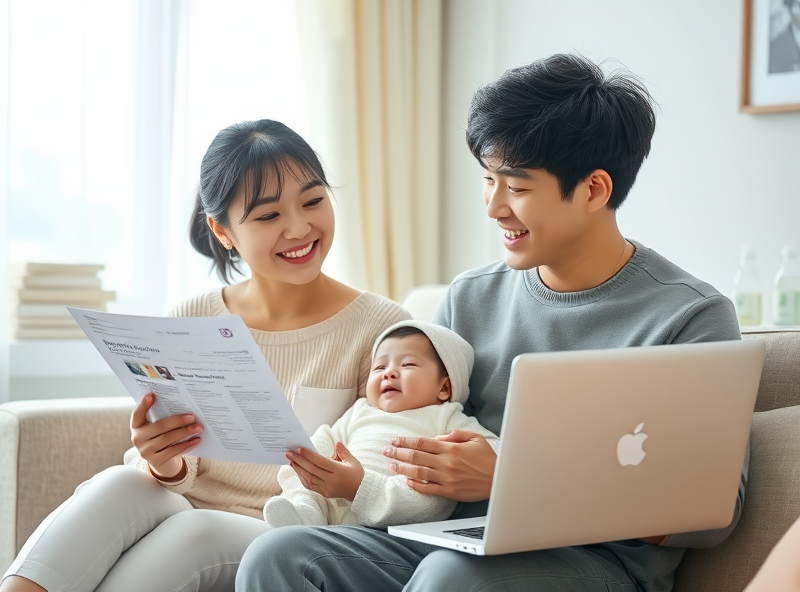
Raising a child can be both joyful and financially challenging. Thankfully, the South Korean government offers several direct cash benefits to help new parents manage the early costs of childcare. These subsidies are designed to reduce the financial burden and encourage family growth in a country facing low birth rates.
One of the most notable programs is the ‘First Meeting Voucher’ (첫만남이용권), which provides a one-time cash benefit of 2 million KRW (approximately $1,500 USD) for each newborn. This benefit is given to all newborns regardless of household income and can be used for various childcare-related expenses.
In addition, parents receive a monthly allowance called the ‘Infant Care Allowance’ (영아수당). As of 2024, this allowance provides 700,000 KRW per month for infants under 12 months old, and 350,000 KRW for children aged 12 to 23 months. This support helps cover daily necessities such as diapers, formula, and baby supplies.
These cash benefits are part of a broader effort by the Korean government to support families and improve the country’s demographic outlook. Parents can apply for these benefits through their local community centers or online via the government’s welfare portal.
For more detailed information, you can visit the official Ministry of Health and Welfare website: https://www.mohw.go.kr
By understanding and utilizing these programs, new parents in South Korea can experience a smoother transition into parenthood with less financial stress.
Monthly Childcare Fee Support by Age
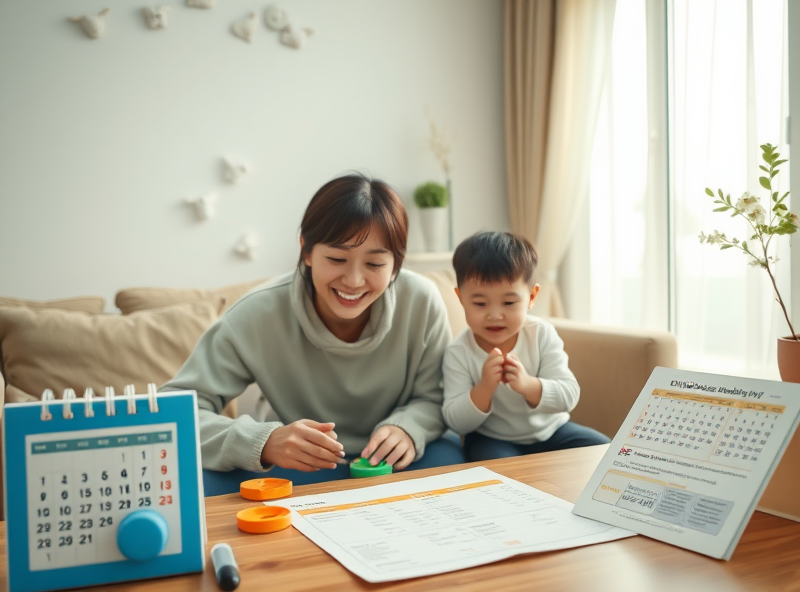
In South Korea, the government provides substantial monthly childcare fee support to reduce the financial burden on families. This support varies depending on the age of the child and is part of the national effort to address low birth rates and promote work-life balance.
For infants aged 0 to 2 years, parents can receive up to 500,000 KRW per month if their child attends a certified daycare center. For toddlers aged 3 to 5 years, the government offers up to 280,000 KRW monthly for those enrolled in kindergartens or childcare centers. These subsidies are provided regardless of household income, making them accessible to most families.
In addition, the government also supports home-based care. For example, if parents choose to care for their child at home instead of using a daycare center, they can still receive a monthly allowance of up to 200,000 KRW, depending on the child’s age.
These benefits are part of the Nuri Curriculum program and other national policies designed to ensure that every child receives early education and care, while also easing the economic pressure on parents. For more detailed and updated information, you can visit the official Ministry of Health and Welfare website: https://www.mohw.go.kr
Understanding these age-based subsidies can help parents make informed decisions about childcare options and better plan their family finances.
Extended Paid Parental Leave Policies

South Korea has made significant strides in supporting working parents through its extended paid parental leave policies. These policies are designed to reduce the financial and emotional burden of childcare, especially during the critical early years of a child’s life.
As of 2024, both mothers and fathers in South Korea are eligible for up to one year of paid parental leave per child. During this period, parents receive a portion of their regular salary, with the government covering the cost through employment insurance. The first three months of leave offer 80% of the employee’s average wage (up to a monthly cap), and the remaining months provide a flat rate. Notably, if both parents take leave, the second parent receives a higher benefit for the first three months, encouraging shared childcare responsibilities.
This policy not only supports family well-being but also promotes gender equality in parenting. It allows parents to bond with their children without the added stress of financial insecurity or job loss. Moreover, companies are legally required to guarantee job protection during the leave period, which further strengthens job stability for new parents.
These policies are especially beneficial for dual-income families and single parents who might otherwise struggle with the high cost of childcare. By easing the transition into parenthood, South Korea is taking meaningful steps toward a more family-friendly society.
For more detailed information, you can visit the official Ministry of Employment and Labor page: https://www.moel.go.kr/english/poli/poliLaw_view.jsp?idx=254
Special Assistance & Early Childhood Infrastructure
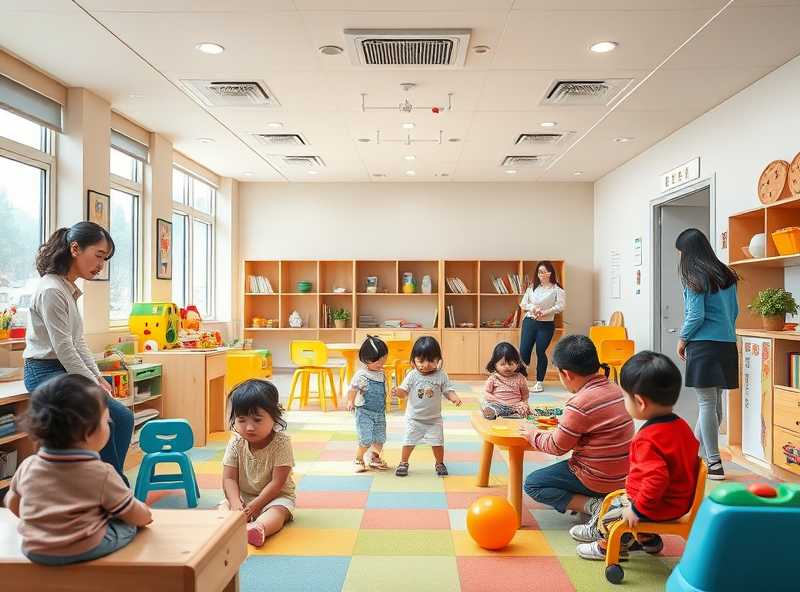
In South Korea, the government has been actively addressing the childcare burden through a combination of special assistance programs and robust early childhood infrastructure. These initiatives are designed to support families, especially those with young children, by reducing both financial and logistical challenges.
One of the key support systems is the ‘National Childcare Support Program’ which provides subsidized access to daycare centers and kindergartens. Eligible families can receive up to 100% coverage of childcare fees depending on their income level. This significantly eases the cost burden for low- and middle-income households.
In addition, the government has invested heavily in expanding public childcare facilities. These centers are staffed with certified professionals and offer high-quality early education and care. The goal is to ensure that every child, regardless of background, has access to a safe and nurturing environment during their formative years.
For children with special needs, South Korea offers tailored support through specialized daycare centers and inclusive education programs. These services include speech therapy, occupational therapy, and developmental assessments, all subsidized or fully covered by the government.
Moreover, local governments provide parenting education programs and counseling services to help parents navigate the challenges of early childhood development. These community-based services are often free and easily accessible.
By combining financial support with physical infrastructure and specialized services, South Korea is creating a more supportive environment for families and fostering better outcomes for children.
For more detailed information, you can visit the official Ministry of Health and Welfare website: https://www.mohw.go.kr
